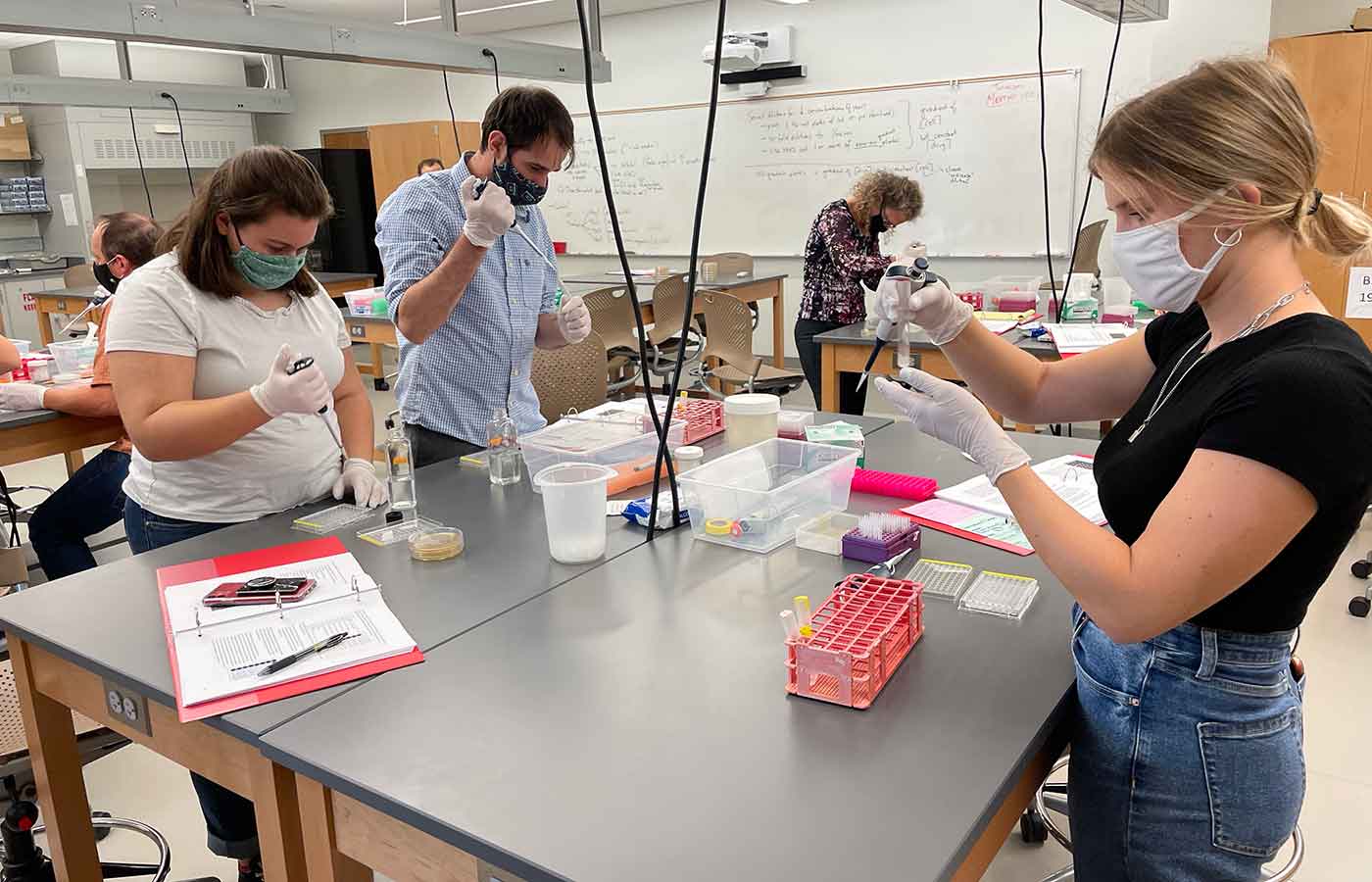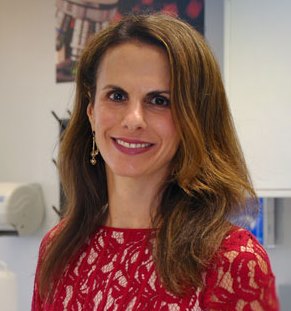News
Striking Lab Results Achieved by Students and Faculty Member

Biology students (from left to right) Hannah Laughner '22, Thomas Brown '22, and Patricia Tadley '23.
When Dr. Lara Goudsouzian and three of her students were accepted into a workshop funded by the National Science Foundation, they had no idea they’d achieve results that would place them on the cusp of scientific discovery.
The workshop, held in Chicago in early August, was centered around learning how to characterize the function of unknown genes in yeast. While yeast is often associated with baking bread or brewing beer, the species of yeast they studied shares enough genetic similarities with humans that it can yield important information regarding our biology.
To figure out the function of a previously uncharacterized gene, Goudsouzian’s lab group—Thomas Brown ’22, Patricia Tadley ’23, and Hannah Laughner ’22—created mutant strains of yeast by working to delete the uncharacterized gene from their genetic code. After careful observation of the effects of the gene’s deletion, they noted that the uncharacterized gene might play a critical role in DNA damage repair pathways in humans.
“In humans, mutations in DNA damage repair pathway genes are associated with dozens of different cancers,” says Goudsouzian, associate professor. “Therefore, it is possible that we have identified a yeast gene that might have a cancer-causing relative in humans.”
Regarding the potential discovery, Tadley says, “I find it so interesting that even though (yeast) has been heavily researched, there is still much that the scientific community does not know. To be able to characterize genes and share this newfound knowledge makes me so excited. It is what drives me as a scientist; the thought that we still have so much to learn and discover.”
Goudsouzian describes her group’s results as being “the most striking” achieved at the workshop. She and her students will continue to research this uncharacterized gene throughout the semester to confirm their results.





